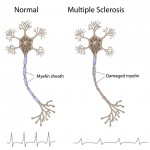 Homemade sauerkraut is a traditional fermented food that can aid digestion. It’s surprisingly easy to make at home.
Homemade sauerkraut is a traditional fermented food that can aid digestion. It’s surprisingly easy to make at home.
You can experiment with the flavor by adding in other vegetables like onions, herbs and peppers.
Serves: 30
Prep time: 30 minutes
Source: Peter Berley
Ingredients
- 5lb green cabbage
- 3 tablespoons sea salt
- 2 tablespoons caraway seeds
- 1 tablespoon juniper berries
Directions
Fill a 1-gallon ceramic pickle crock or bowl with boiling water.
Remove the tough outer leaves of the cabbage then cut it into quarters. Cut away and discard the core. Slice the wedges of cabbage crosswise into very thin shreds with a mandoline.
In a large bowl, toss the shredded cabbage with the salt and caraway seeds.
Pack the mixture into the crock or bowl and cover with a clean plastic bag. Place a heavy weight (such as a couple of bricks or a large jar filled with water on top of a plate) on top of the plastic and let the cabbage ferment at room temperature (68-78 degrees) for 10 days. The cabbage must ALWAYS stay submerged in the brine that forms. Watch the kraut carefully and skim off any scum that forms. The kraut is ready when it no longer tastes salty but has a pleasing sour taste.
Transfer the sauerkraut to a clean glass container, cover, and store in the refrigerator for up to 6 months.
See Also
Sign up for my best gluten-free, dairy-free recipes below:
 Anyone who’s spent time with a cranky child – or adult – after they’ve eaten too much candy can tell you:
Anyone who’s spent time with a cranky child – or adult – after they’ve eaten too much candy can tell you:  This is one of my favorite recovery stories, as it shows how powerful food can be in recovering from an extremely debilitating chronic illness like multiple sclerosis.
This is one of my favorite recovery stories, as it shows how powerful food can be in recovering from an extremely debilitating chronic illness like multiple sclerosis. Having a son with a developmental delay was very hard on me. He didn’t walk until he was 20 months old. This was extremely hard for me because he didn’t walk until 3 weeks before his little brother was born, and I was having to carry him everywhere.
Having a son with a developmental delay was very hard on me. He didn’t walk until he was 20 months old. This was extremely hard for me because he didn’t walk until 3 weeks before his little brother was born, and I was having to carry him everywhere.

